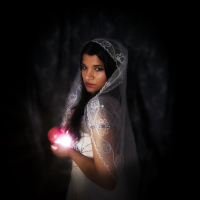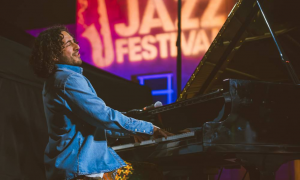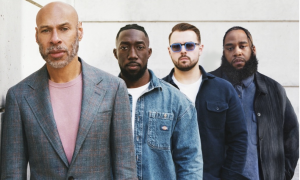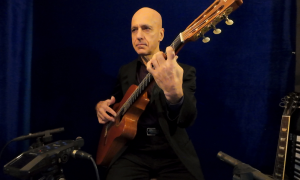Also mentioned in the previous post was a tribute show that I was involved with this past Friday. My band played in a series of tribute performances dedicated to the varied career of Miles Davis that was put together by LUCID Jazz Lounge here in Seattle. LUCID has had a string of very successful tribute nights over the last six months, including shows dedicated to Charles Mingus, Art Blakey, The Birth of the Cool and now Miles. Ive either played in or been in attendance at each of these shows and Id like to share my experience of them here.
I am going to try to stay away from broad generalizations in this post and speak of my experience, but I would like to say just a few words first about some of the things my esteemed colleagues have written. For instance, when Freeman writes How much do jazz artists hurt themselves by explicitly referencing history--releasing [New Guy] Plays [Dead Guy] CD's all the damn time? I believe he is being over general and a bit closed-minded. Jazz musicians are always referencing history in some way, as are all artists, really. Whether celebrating that history or trying to destroy it, were all reacting to what has come before us. Peter Hum goes one step further when he shares his belief that most tribute projects are easy outs taken to the detriment of original music. While this may be true in some instances, I can think of countless tribute CD's and concerts that Ive seen/heard that were most thrilling and original. Sure, sometimes these concerts can be simple rehashing of something that has been done before. But just as often they can be extremely telling examples of just how original jazz musicians can be, even while playing the music of others. Its a way to show what we, as jazz musicians, have learned from this music and how it informs the decisions we make in our quest to say something unique and original. And while tribute shows and CD's are more programmatic, I dont see how they differ hugely from John Coltrane playing My Favorite Things or Brad Melhdau playing Radiohead covers or Vijay Iyer playing M.I.A.s Galang. I don't think anyone would accuse Trane or Brad or Vijay of taking an easy out.
Perhaps the backlash against tribute shows is because, as Gardner points out in his piece, it has become commonplace for jazz festivals to use tribute shows to anchor their programs. He writes:
Concert and festival promoters are under a misconception that they have to package music this way in order to make it appealing to the audience. The truth is, people can hear and feel honesty in music and respond to it. I cant tell you how many times that, after talking to someone who attended a tribute concert of which I was a part, they asked me, Who was that Monk you were talking about on the stage? My experience has been that usually they don't remember or make a connection with the person we were paying tribute to but always remember a great musical moment of the night, regardless of whose tune it was on. They always say, That piano player could play, the point being that he could have been playing on a Monk tune or one of his own originals. If the right musicians are allowed to present their music without constraints, audiences will appreciate being able to connect with the musical vision of those jazz musicians as they see it today.
But Gardner's own words could be used in reference to tribute shows as well. I agree that people can hear and feel honesty in music and respond to it. Which is why I believe that tribute shows can be of great benefit to us if we remember to bring our own passions and our own truths to the music we play. Whether its my composition Im playing or something from the Miles Davis canon, I strive to bring my own personality to bear on the tune.
Now, I'm not arguing that we should do nothing but tribute shows. I agree with Freeman, Hum and Gardner that musicians need opportunities to present our own works in concert and on CD. But here are a few of the upsides Ive seen from the string of tribute shows at LUCID:
Tributes Bring Out New Audiences
Each of the tribute shows LUCID has put on has been packed with people, many of whom were experiencing the venue and the band for the first time. Attaching a name like Mingus or Miles to a show gets peoples attention. I have seen first-hand these new audience members getting turned on to the bands playing, and I have seen them come back when the band has subsequently presented shows of original music. Personally, I have sold more CD's and signed up more people for my mailing list at these shows than at most of my other shows. How is that not a win? Also, the venue has attracted new fans that will come back again on the nights when bands are playing their own music. And just for the record, in 14 months, LUCID has had music 4-5 nights a week and only 5 tribute shows. That's 98.2% original music, for those keeping score.
Tribute Shows Attract the Media
For better or for worse, tribute shows get the attention of the media. Just like the audiences, the media perks up when they hear a name they know. This has allowed both the venue and the artists to receive coverage and attention that is much harder to come by on our own. We have gotten radio mentions of our shows on the local NPR station and write ups in the major daily, weekly, and jazz papers in town. I don't think I have to explain what a coup this is. And again, it leads back to point number one, that new audiences will hear about and attend these shows.
Tribute Shows Allow Us the Opportunity To Show Our Personality
It's obvious that playing our own material allows us to show our personality. But playing other peoples music does as well. To take a well-worn standard or pop tune and put our own stamp on it is a very effective way to show the audience who we are using a familiar vehicle. And its a big part of the jazz tradition. Even musicians we think of primarily as composers used other peoples songs as vehicles for their own improvisations and personal expression. Ellington, Coltrane, Monk, Davis, Iyer they've all expressed their personalities through other peoples music in the most beautiful and effective ways.
Let me close by reiterating that I'm not advocating for All Tributes All the Time. I'm thankful to have the opportunity to present my own music most of the time. But I believe that--the bad rap that tributes have been getting recently is a bit short-sighted and leaves out the many benefits these shows afford us, some of which I've mentioned above.
What do you think? Do the benefits I've pointed out ring true to you? Do you feel the negatives outweigh the positives? I'd love to hear your thoughts, both musicians and fans alike! Leave me a comment and let me know.





















